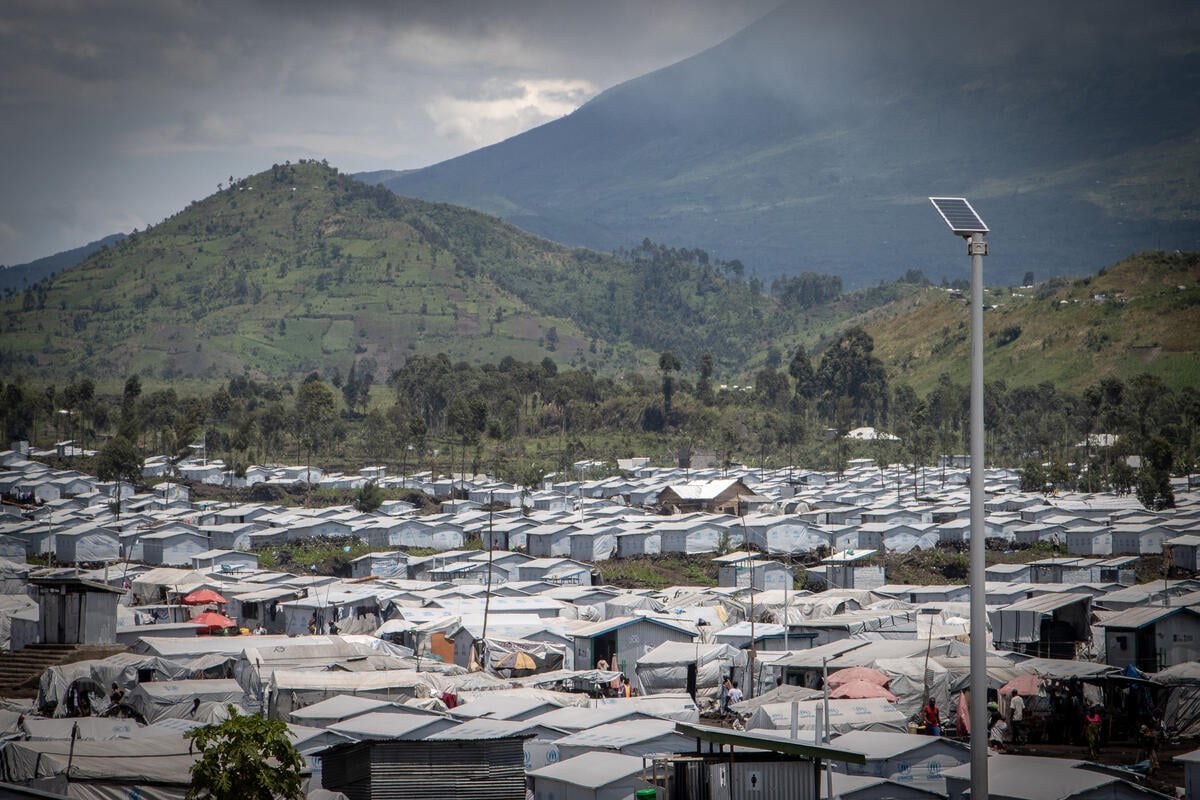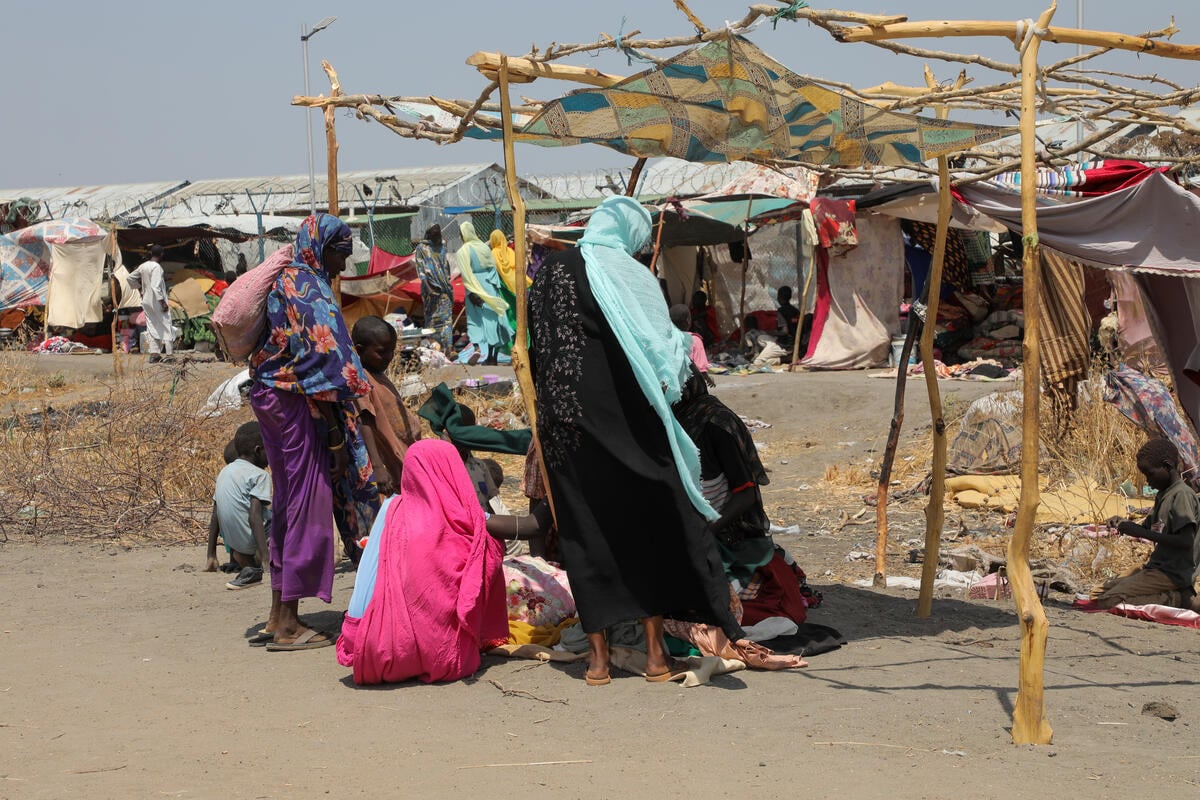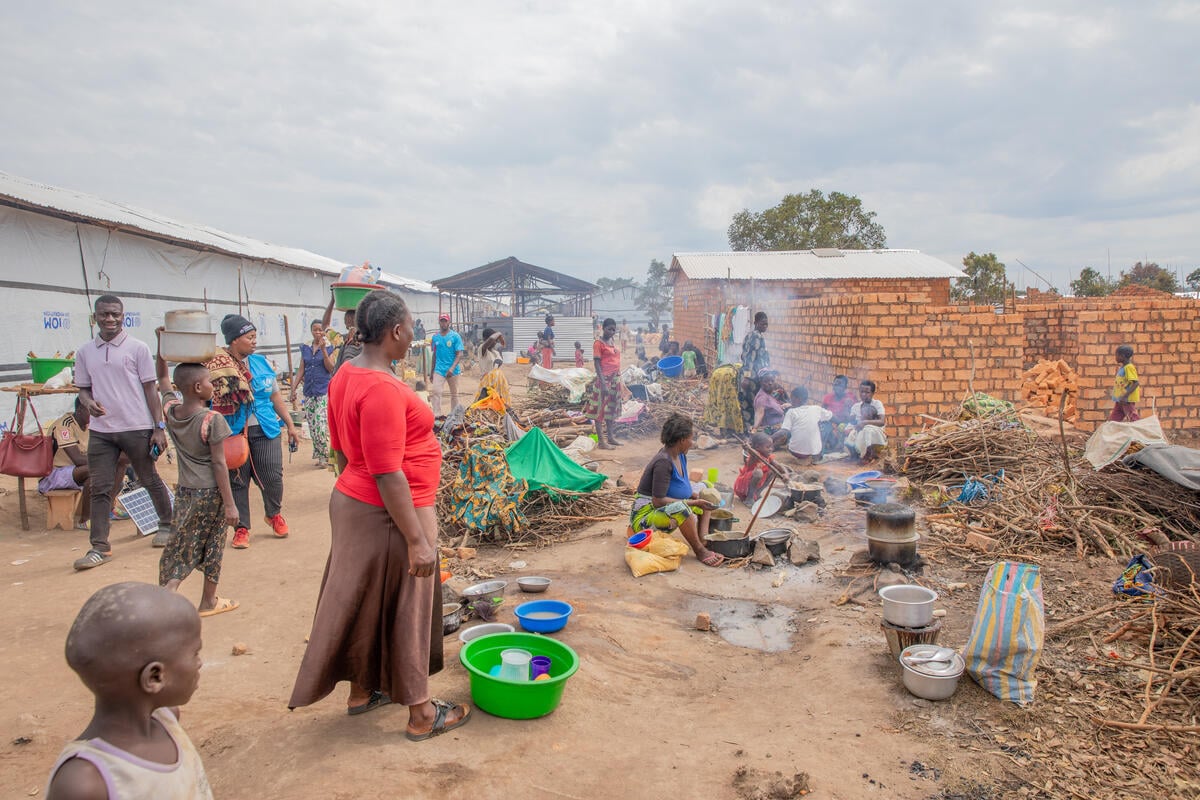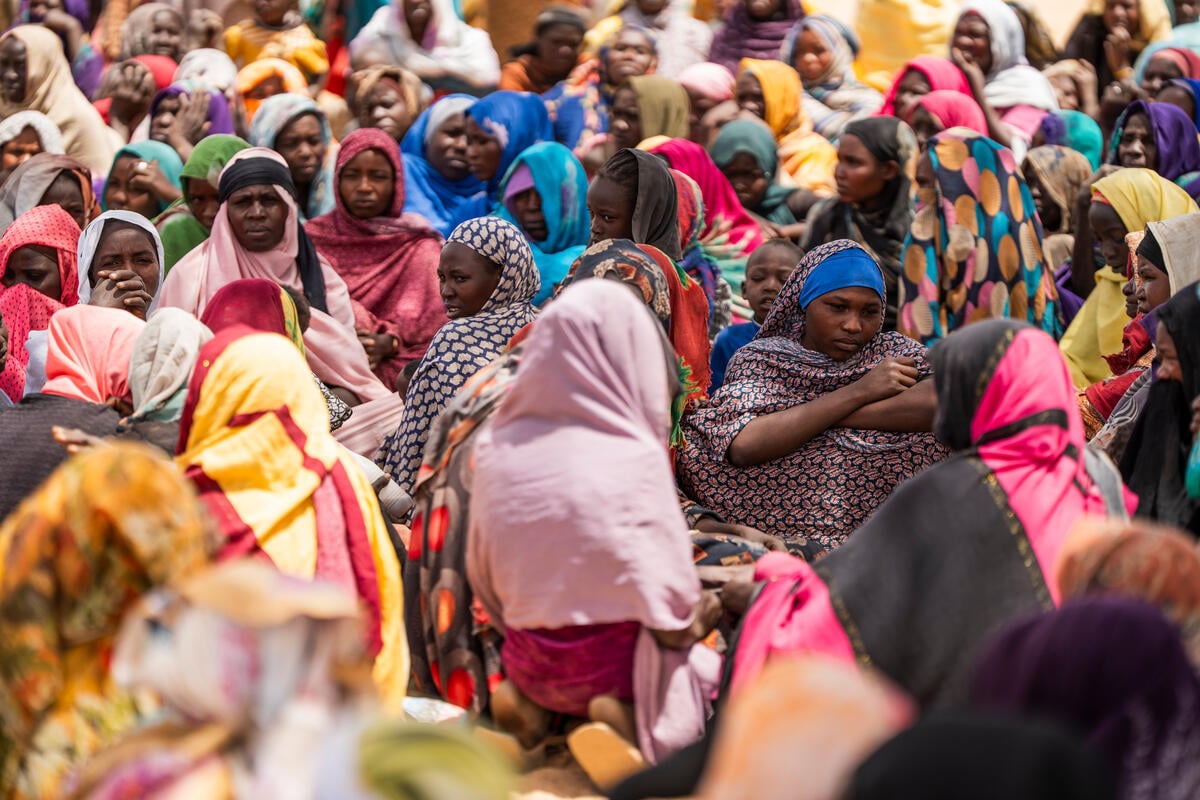Papyrus and scrap paper: a monthly blessing for refugee women in Uganda
Papyrus and scrap paper: a monthly blessing for refugee women in Uganda

KAWEMPE, Uganda, March 14 (UNHCR) - Rosette Akaliybo, a 37-year-old Congolese refugee, sits quietly at a wooden table with three men, each young enough to be her son, doing what many would consider a most unusual job.
"This is my first official job in Kampala," says the single mother of two as she stuffs 10 sanitary napkins into MakaPad's signature green packaging at the company plant in Kawempe. It is the firm's biggest production site of Africa's first hand-made hygiene product made from local materials.
Rosette is one of 150 employees of the MakaPad factory here in Kawempe, a few kilometres south of the Ugandan capital. She is also one of four refugees - and the first woman refugee - selected to participate in a new pilot project that trains and employs urban refugees.
"I walk two hours each morning to come to work and two hours to get home," she says. "It's not easy, but I can't afford to pay for transport."
Six members of her extended family depend on her salary. As one of nearly 70,000 urban refugees in Kampala, she appreciates the opportunity she's been given.
Rosette's job is the result of an innovative partnership between two seemingly strange bedfellows: an engineering professor and the UN refugee agency.
"Being a man, I'd never even seen a sanitary pad," confesses MakaPad's founding engineer, Moses Musaazi, looking over the now busy production line, which uses locally grown papyrus. "Then at a meeting one day, a lady took a pad out of her bag and threw it at me. I thought it was a joke." It wasn't.
It was 12 years ago when researchers from Kampala's Makerere University and the United States-based Rockefeller Foundation explained to Musaazi that girls were missing up to three days of school every month-and even dropping out-simply because they could not afford the high cost of sanitary products. Even those girls who stayed in school were falling behind.
Musaazi took on the daunting challenge of inventing an inexpensive and biodegradable sanitary napkin made from local materials. Using his wife and daughter as guinea pigs for his prototype absorbent designs, Musaazi discovered the perfect ratio of papyrus and shredded scrap paper, which he collected free from UN agencies and embassies in Kampala.
Flash forward to 2013: the company is producing nearly 4 million MakaPads a year at three different production sites across Uganda, including one inside a refugee settlement in the south-east. The MakaPad name is an acronym for menstruation, administration, knowledge and affordability.
The company's biggest fan might come as a bit of a surprise. "UNHCR is MakaPad's biggest customer," Musaazi says. It buys 90 per cent of production for some 55,000 women and girls of reproductive age in Uganda among the 190,000 refugees in the country.
The UN refugee agency began buying from MakaPad because of the opportunity to give jobs to refugees while also procuring environmentally-friendly products to help keep girls in school.
Seven years ago, the company opened a production site in Kyaka II refugee settlement in south-east Uganda that today is run by a refugee and employs more than 50 of them.
In February, MakaPad and UNHCR launched a new pilot project to train and employ Kampala refugees at the Kawempe site. And for MakaPad's general manager, Juliette Nakibuule, refugees are more than welcome.
"Here at MakaPad, refugees acquire skills and earn an income," Nakibuule explains. "We hope to train more refugees on a monthly basis and we want at least 20-30 refugees to work here."
Nakibuule wants to make her company's product a big hit with the Ugandan public, not just with UNHCR. "We want to be the first pad out of 35 available in stores that is 90 per cent biodegradable with no chemical additives," she says. Eventually she'd like to expand beyond Uganda's borders as well.
And after one week of work, what does Rosette think?
"It will take time to get the experience that I need to work quickly and to earn more money," she says. "But it will be okay because I am making an effort and I am motivated."
By Kathryn Mahoney in Kawempe, Uganda









